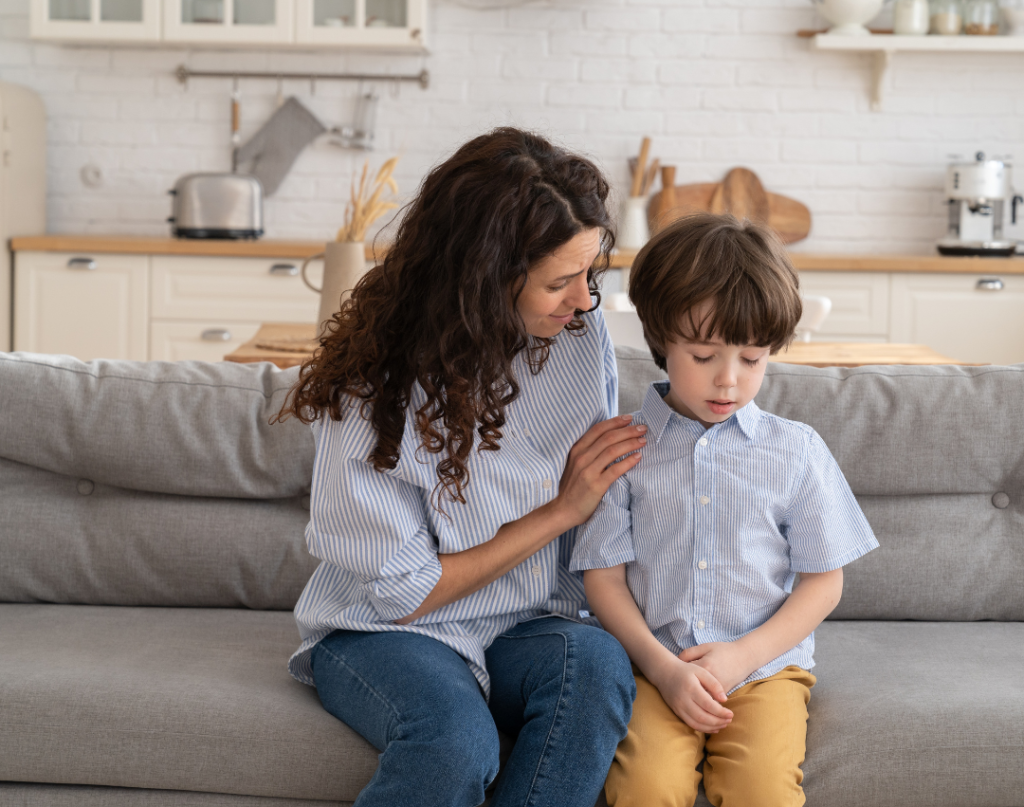I often get questions from parents about why their children are so hard on themselves or why their children convince themselves that they are not good at something. Despite their best efforts to build up their self-confidence and praise them for their effort, rather than their finished product or performance, they share that their child is still making negative comments about themselves or hear their child saying things like, “I am not good at math” or “I stink at soccer”. These are hard words to hear as a parent and as a parent of two myself, I find myself wondering what else I can do to help build my children’s resilience and growth mindset.
Resilience is “the ability to adapt well to adversity, trauma, tragedy, threats, or even significant sources of stress” (American Psychological Association). I like explaining to children and adolescents that I work with that resilience is the ability to “bounce back”. The difficult event that takes place may be something as adults we consider small like someone who doesn’t return our greeting or something that we consider much more significant like the death of a loved one. Sometimes these smaller events are ones we minimize as parents and say things like, “Don’t let that bother you” or “It’s no big deal”. Other times as parents, we want to offer advice right away on how to handle these situations.
Building resilience in children can occur by listening and validating their feelings without trying to minimize or problem-solve. Invite your child to decide how they want to move forward, perhaps offering to brainstorm some ways to manage the negative feelings and then work through the situation together. This helps them gain the skills to “bounce back” and become problem-solvers.
Growth Mindset—a concept coined by Carol Dweck—describes how our abilities can change over time and we can learn new things compared to a ‘Fixed Mindset’, which is the belief that our abilities are unchangeable (Mindset: The New Psychology of Success). In theory, this idea seems so reasonable and something we want our children to embrace. Yet, as someone who struggles with having a growth mindset in all areas of my life, I can see and understand how this doesn’t always come naturally for the children and adolescents I work with.
I am encouraged through reading and research that the ability to grow a growth mindset is possible! I also find it encouraging that we may have different levels of growth mindsets in different areas of our life. For example, in sports or athletics, your child may understand that practice, time and effort increase their ability while in academics, your child may believe that some people just aren’t math people. We can take what we know works in one area of our life and see how these strategies can build our abilities in other areas of our life.
I am learning in my work with children and adolescents, as well as parenting my children, that I can impact their resilience and growth mindset through how I handle my own challenges. As parents we can often be critical of how we handle a situation or get frustrated with ourselves for not being on time, not looking just right, or holding ourselves to a very high standard.
In these moments, it is important to use the same skills we hope our children learn. It can start with acknowledging the negative thoughts you are having and then using those same coping skills to calm the negative thoughts and feelings. It can be extremely helpful for your children to see you using these skills and it will help them build resilience in their lives.
I have found myself saying things like “I am not good at X” in front of my children and this could be a slogan for fixed mindsets. One very simple way to start building a growth mindset and modeling this for our children is to add the word, “Yet!” This single word adds possibility and encouragement to keep going. It also sends a message to our children that when they feel “stuck” they can use positive thinking to help change their feelings and behavior.
I encourage further reading on these topics if you are interested. Some of the books I have found most helpful are:
- How Children Thrive: The Practical Science of Raising Independent, Resilient and Happy Kids by Mark Bertin, MD.
- Raising Resilient Children: Fostering Strength, Hope and Optimism in Your Child by Robert Brooks, Ph.D. and Same Goldstein, Ph.D.
- The Optimistic Child by Martin E. P. Seligman, Ph.D.
- The Growth Mindset Workbook for Teens (Say Yes to Challenges, Deal with Difficult Emotions, and Reach Your Full Potential) by Jessica L. Schleider Ph.D., Michael C. Mullarkey Ph.D. and Mallory L. Dobias BS
If you feel like your child could benefit from speaking to someone, please contact the Clubhouse to learn more about how we can help.
Written by Katie Prahin, LCSW

